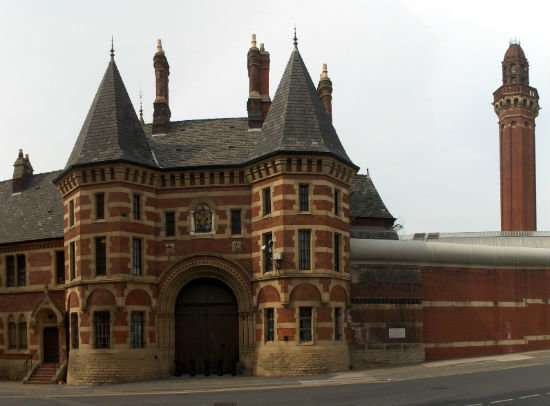Prisoners recovering from addiction encounter 'cliff edge' with little support on release

A new report warns that drug recovery work in prison is largely futile unless suitable accommodation and support are available to prisoners after release.
Research led by the University of York found that many prisoners experienced a 'cliff edge', receiving little or no professional support in the weeks preceding or following release, and were housed in inappropriate hostels or funded B&Bs where drugs and prostitution were rife.
The researchers conclude that without adequate support on release, those who have served their time are likely to relapse and reoffend, no matter how good the support received in prison.
Major evaluation
The report is based on a substantial evaluation of the Government-funded Drug Recovery Wings (DRWs) pilot in prisons, carried out by researchers from the Centre for Substance Use Research in Glasgow and the Universities of Cambridge and York.
Pilot DRWs were set up in 10 prisons across England and Wales between 2011 and 2012: Brinsford, Brixton, High Down, Holme House, Manchester, Swansea, Chelmsford, Bristol, Styal and New Hall. Their aims included 'challenging offenders to come off drugs'and delivering abstinence-focused drug recovery services.
The new report published today, Evaluation of the Drug Recovery Wing Pilots, presents the findings from the major evaluation, which was funded by the NIHR Policy Research Programme, and involved 345 interviews and analysis of questionnaire data from over 1,800 prisoners. The four-year study assessed what impact DRWs had on prisoners' drug or alcohol dependency and their impact on prisoners' reoffending.
Support
In their report, the researchers conclude that new models of treatment and through-care that link effective approaches in prison with well-resourced, post-release support for prisoners recovering from substance misuse must be made a priority.
Principal Investigator Charlie Lloyd, of the University of York's Department of Social Policy and Social Work, said: "It's important to recognise that some of the pilot DRWs offered promising approaches, involving dedicated staff working with prisoners who wanted to make real changes to their lives. Unfortunately these plans often came to nought on release.
"We have to ask ourselves whether any of us could make any radical changes to our lives, if we were forced to live in the type of environments many of our ex-prisoner interviewees had to live in on release. Going forward, there is pressing need to give prisoners with a history of drug dependence a realistic chance of making positive changes to their lives once they have served their time and been released from prison."
The study's key findings are:
- There was a fundamental imbalance between the level of the prisoners' past and present problems, and the input that they received while in prison and most importantly, on release.
- DRWs were insufficiently resourced in terms of the one-off payment of £30,000 made to each, and insufficiently protected within the prison in terms of accommodation and staffing. A key issue here was the national drop in prison officer numbers over the study period.
- Comparing the six months prior to incarceration and the six months following release, there was a reduction in self-reported substance use and crime. However, in the absence of a comparison group, this reduction cannot be attributed to the DRWs.
- Some DRWs offered excellent support, such as Manchester, Swansea and Styal, providing safe therapeutic environments in which prisoners gained motivation and addressed multiple areas of social and personal need, supported by highly motivated and committed staff.
- However, without continuing help on release from prison, such efforts were often in vain. Many prisoners in this study experienced a 'cliff edge' of support, receiving little or no professional support in the weeks preceding or following release. Some of the hostels or funded B&Bs in which they were accommodated were described by interviewees as 'crackhead hostels' and 'absolute madness'.
- There is a pressing need to identify new, promising approaches that link effective approaches in prison with post-release support for prisoners recovering from substance misuse.
Provided by University of York
















